Sports editor Adele Norris rounds up the women who could bring home the bling for Britain
The road to Sochi has been a long distance to travel since it was selected as host back in July 2007. Not only for the athletes training and competing to secure a place at the games, but for the Olympic torch which has reached dizzy heights of Mount Elbrus and the dark depths of Lake Baikal on its longest relay in Olympic history, it even journeyed to the North Pole via a nuclear-powered icebreaker.
Now as the XXII Olympic Winter Games in Russia get underway, the venues of the Olympic Park stand proudly clustered around the Medals Plaza awaiting the action in the Imeretin Valley.
Ninety-eight events. Fifteen winter sports. And approximately 2,800 athletes competing for the medals.
So who are the ones to watch?
SHORT SPEED SKATING
Short speed skating sport involves competitors racing directly against each other on the ice at speeds of around 35-kmph and will take place in the Iceberg Skating Palace in the Olympic Park situated by the Black Sea coast in the Imeretin Valley.
Selection for the short track speed skating has already taken place and GB will take five athletes to Sochi. Two of which are Charlotte Gilmartin, and Elise Christie.
Gilmartin races in the 500m, 1000m, and 1500m. At the ISU World Cup series last season she reached a number of semi-finals and finals in her multiple distances. Her first individual medal came last year when she took the 500m bronze at the 2013 European Championships in Maimo.
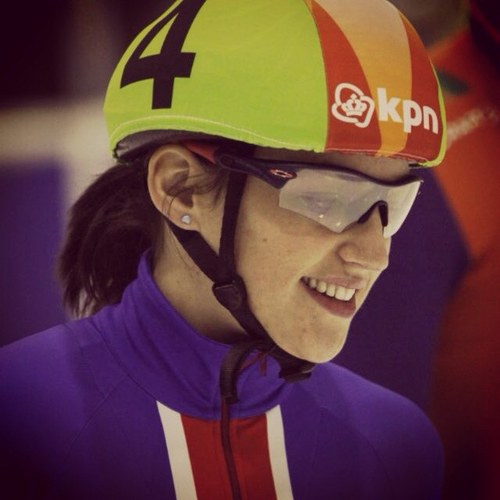
It was teammate Elise Christie who shared the podium with her taking gold.
Christie, competing in the same distances, experienced her debut Olympic Games at Vancouver 2010 finishing 11th, 20th and 19th. Once she had a taste of the competition Christie began marking her way to Sochi.
At the 2012/13 World Cup she won silver in the 1000m opening race and went on to take several medals that season finishing in Calgary with a number one ranking in the distance.
A newly crowned triple European Champion and winner of Britain’s first ever individual women’s World Championships medal, Christie is a strong contender for February.
In the last competition before the Winter Olympics the 23-year-old defended her 1000m European title striking Gold in the final hours of the Championships just last week.
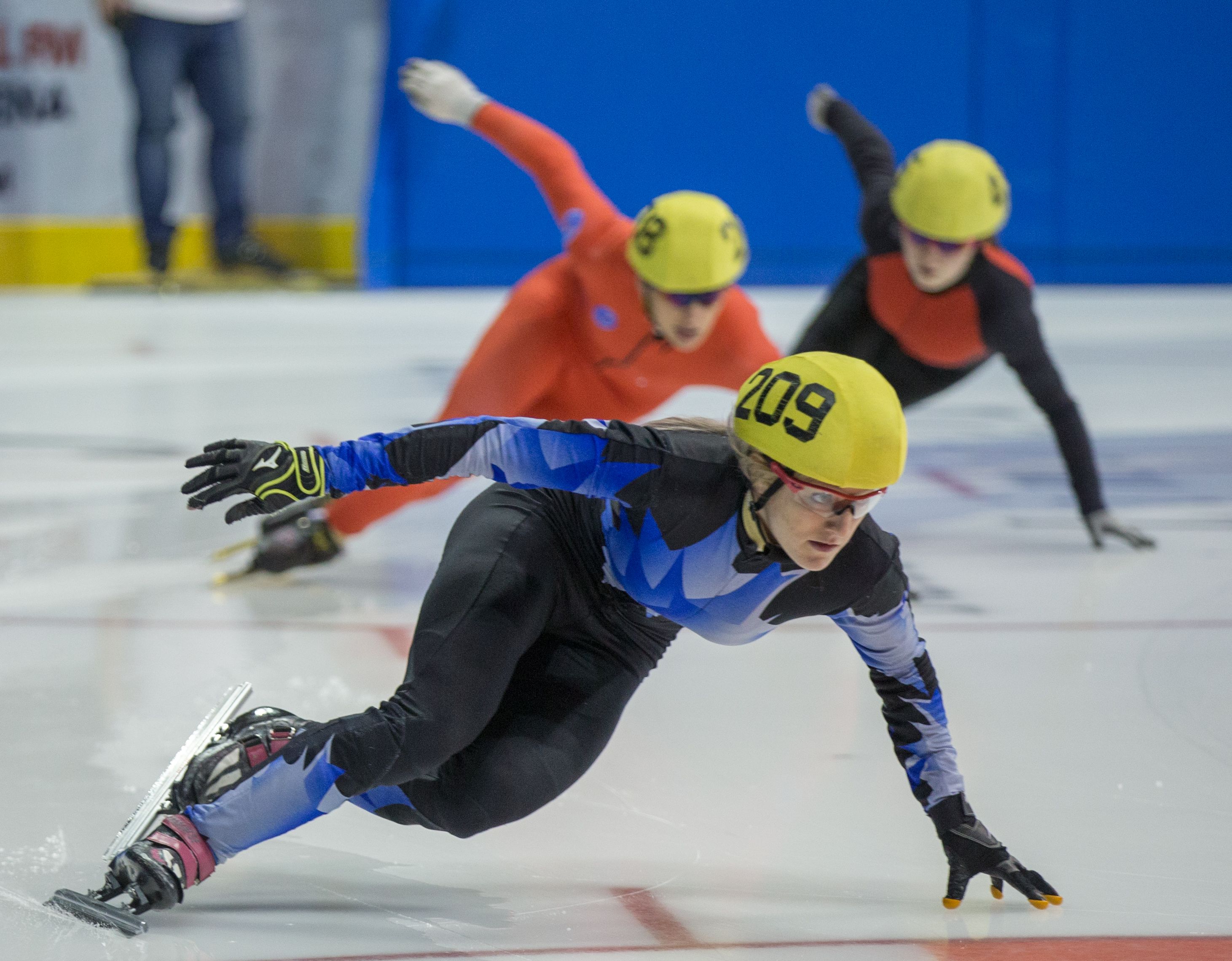
In a devastating blow for strong contender, World and Olympic Champion Wang Meng broke her ankle just days from the Games.
Christie told BBC Sport it means there is ‘all the more to play for.’
Though we can’t yet tell you what colour hair she will be sporting for the games, having fashioned bubblegum pink, green, purple and electric blue in the last 12 months.
Both women have British records in the 500 and 1500-metres, previously held by Christie and now Gilmartin.
FIGURE SKATING
Figure skating is perhaps the most well known sport of the Winter Olympics thanks to the iconic gold medal win in 1984 by Torvill and Dean.
It is also the oldest sport at the Olympic Winter Games having formed part of the Summer program at London 1908. It featured again at Antwerp 1920 and was then among the original seven at the very first Olympic Winter Games in Chamonix in1924.
Sochi 2014 will see the introduction of a team event for the first time ever, accompanying the already contested men’s, ladies, pairs and ice dance, and will also take place in the Icebrerg Skating Palace with the Short Track Speed Skating. The venue has a 12,000 spectator capacity.
Only Great Britain and the USA have competed in figure skating at every single Olympics with America being the most successful nation. This year we want to change that.
Team GB is sending five athletes to compete for the five gold medals on offer.
Ice dance duo Penny Coomes and Nicholas Buckland, both 24, placed 20th in their Olympic debut at Vancouver 2010 and they’ve been setting the stakes to show the competition what they are really made of this time round.
In the month leading up to Sochi they’ve made the best result of their careers taking bronze at the European Figure Skating Championships and a personal best 158.69 score. Two places higher than their finish last season.

Previously it was their World Championship finish in March which secured them a place in the ice dance competition at Sochi when they finished 13th overall.
The same year they won the British Championships for the third consecutive time.
In her Team GB blog Coomes reflected on taking the British title: ‘Competitions days are quite quiet for us compared to an average training day – which consists of several hours of on and off ice training with small breaks. Although competitions can be stressful or nerve racking we actually get to rest a lot more at a competition.’
The next figure skating pair know the competition. They were the first GB pair to compete at an Olympic games in 16 years and they’ve certainly had time to scale up their opposition.
Stacey Kemp and David King are figure skating partners for better or worse.
Since their engagement at the closing ceremony of the 2010 Winter Olympics in Vancouver the duo had a tough winter. Kemp tore her posterior cruciate ligament and King suffered an ankle injury resulting in 17 weeks out of action.
Then at the British Championships in Sheffield Kemp fell and they finished second behind Amani Fancy and Christopher Boyadji.
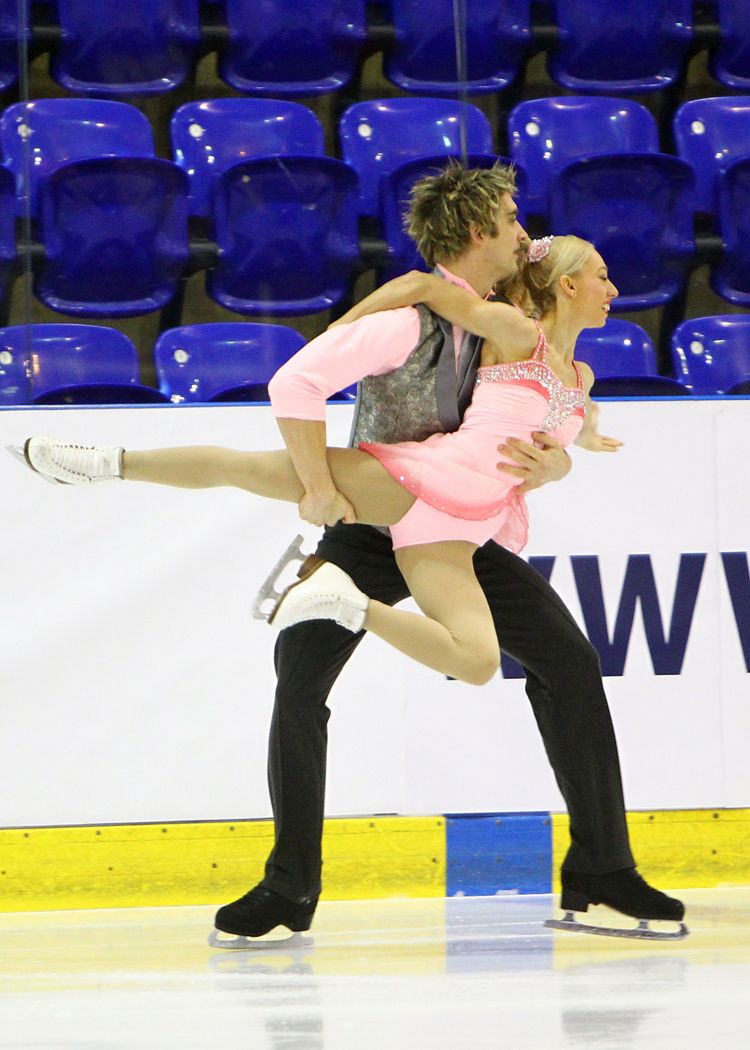
It broke a run of eight consecutive British titles for King and Kemp, having won their first senior title in 2006, but they said they remained confident ahead of Sochi, where they hope to better their 16th place in Vancouver.
And confident they were. They couple placed 15th at the 2013 World Championships but it wasn’t enough to earn Britain an Olympic pairs place. With their determination and confidence they went on to the second qualifying event and didn’t falter.
Having competed in 7 European Championships, 7 World Championship, 1 Olympic Winter games and numerous Grand Prix and International competitions the couple have had plenty of time to size up other nation’s athletes.
‘A few of the European pair teams are our closest rivals at the moment.’ Kemp said: ‘At Obersdorf we came on top of the qualifying countries to compete at Sochi. So we know we can be ahead of a lot of those teams, but it all depends on the day and who performs.’
And with 10 British Championship titles, 1 Novice, 1 Junior and 8 Senior titles and having ranked 6th in Europe and 13th in the world there is a lot of reason to follow them.
Having been a couple outside of the sport since 2005 the duo could have the strength to get a medal.
‘In the early days, it was sometimes challenging to know the difference between your job and your relationship. If we ever have disagreements or things got tense that stays at the rink and we don’t take it home with us,’ said Kemp.
‘We work so well together and being a couple on and off the ice has helped to our advantage. We help each other through the hard times and we have been together to enjoy the special moments on our skating journey.‘
Finally Jenna McCorkell will be representing Britain in the ladies having also secured her place from the 2013 World Championships.
The ten-time British champion placed 20th at the World Championships and was 29th at the Vancouver Games in 2010.
At 27 McCorkell has been part of the national squad for 17 years being the youngest skater to make the team aged just 10.
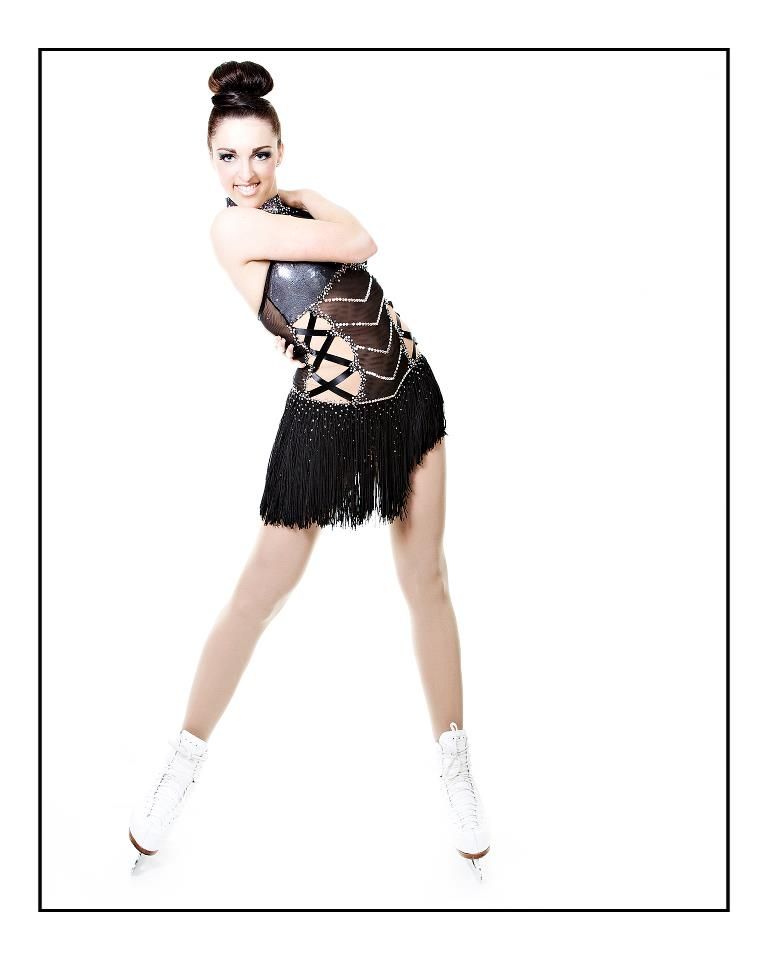
Her time there has been well spent, she is an 11 time British Champion, most recently winning the 2013 National Championships, and has experienced the international scene winning gold medals at the 2012 Ondrej Nepela Memorial event and the Ice Challenge 2012 event.
She also finished second at the Volvo Cup 2013, and has placed within the top ten at two European Championships.
The Vancouver 2010 Olympic Winter Games marked her Olympic debut where she finished 29th in the Women’s singles.
SKELETON
Skeleton is one of the three sliding sports along with Bobsleigh and Luge. Athletes push their sled one handed away from the start then lay face first and negotiating the track, steering with their shoulders, knees and toes. Athletes can reach speeds of up to 140 km/h and experience g-force of up to five grams.
At Sochi the sport will take place on the Western Caucasus Mountains at the Krasnaya Polyana Olympic site. The new venues in the Mountain Clusters have already hosted elite sporting competitions such as World Cup events during the 2012/13 season.
Skeleton will be held in the Sliding Center Sanki track along with the bobsleigh and lung events.
Shelley Rudman, 32, has already represented GB at two Olympic Games. Residents of her home village in Wiltshire raised £4,000 to help Rudman in her efforts to qualify for Turin, 2006. Their fundraising paid off when Rudman won Britain’s only Olympic medal of the games with Silver.
Four years later at Vancouver’s Winter Olympics she finished 6th. Vowing to redeem her place on podium this year, Rudman earned the World Cup title in the 2011-12 season and was the 2013 World Champion after becoming the first British female winner in St Moritz last year.
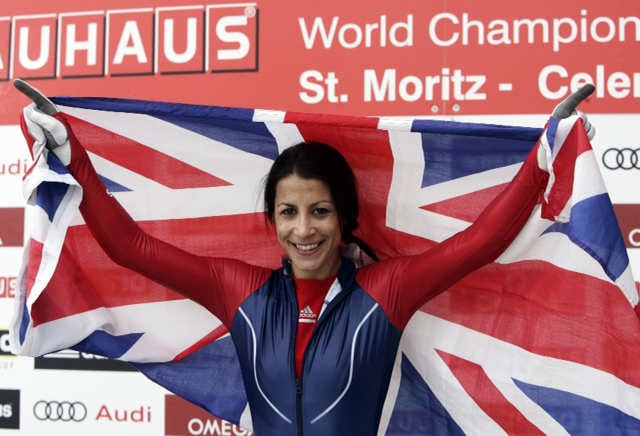
She claimed victory in four minutes 38.60 seconds in the fourth and final run, but fierce competition American Noelle Pikus-Pace took silver, finishing just 0.57 seconds behind.
A newly crowned European champion – She took the title for the third time just last week – Shelley and fiancé, fellow British slider Kristan Bromley, train together and told BBC Sport they are “highly competitive with each other”. They have a daughter, Ella, who was born in October 2007.
Ahead of Sochi she said: ‘My first Games in Turin in 2006 where I won the silver medal was a hugely positive experience for me, Vancouver in 2010 was disappointing after I just missed out on a medal – so going into Sochi I hope I will be able to merge all my experiences from the last two Olympiads to give myself the best possible chance of success.’
Pikus-Pace has been tight on another GB Skeleton’s heel in this seasons World Cup.
Team GB’s Lizzy Yarnold, 25, beat Pikus-Pace in a nail biting race to become 2014 World Cup Champion in Königssee just last week – a sharp warning to her rival ahead of the Games. Yarnold went into the final race just 225 points ahead of Pikus-Pace after the pair had alternated podium gold and silver places in the previous six races of the season. They promise a bums-on-edge-of-seats tight performance for an Olympic medal.
Last week saw Yarnold’s seventh straight podium performance which should secure the overall World Cup title in Königssee next week. The event doubles as the European Championships, and with only 225 points remaining on offer Pikus-Pace will be sure to push the athlete in an ultimate last test of strength.
Shelley finished overall third – a vivid image of Team GB either side of Pikus-Pace to keep her on her toes for Sochi.
On being selected for GB’s Olympic team Lizzy vowed to bring home gold: ‘I don’t take part in races to come second, so I will approach the Olympic Winter Games as I do every race and give it everything I’ve got!”
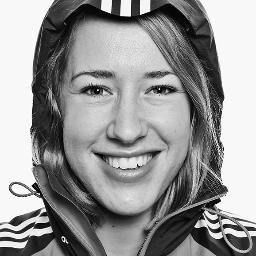
A former heptathlete, in 2012 Yarnold was world junior champion and won bronze in the senior event the following month.
In her first full season at senior level, the 2012-13 World Cup, she finished forth having competed in all nine races and finishing outside the top 10 merely once.
Only two countries can take three women to the Olympics. Germany and Russia will be those countries at Sochi while Great Britain, Canada, USA and Australia will be allowed two selections.
Yarnold said: ‘My whole life I have dreamt about becoming a British Olympian and for the last five years since I took up skeleton, competing at Sochi 2014 has been my primary focus.’
‘This season has been great for my preparation, I am in a good place both physically and mentally – and I can’t wait to get back on the Sochi track, go over the lines and maintain my focus.’
BOBSLEIGH
This season Britain’s bobsleigh performances throughout the World Cup Series earned Team GB four qualification spots for the bobsleigh events in Sochi. They include two men’s teams in the four-man bobsleigh, as well as one team in both the men and women’s two-man bobsleigh.
Paula Walker was always the first-choice British women’s driver after the retirement of Nicola Minichiello, who won the world title in 2009 with Gillian Cooke.
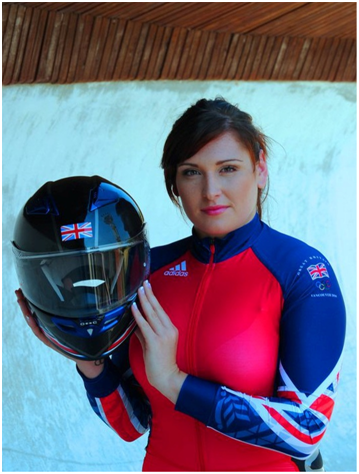
Walker, 27, enjoyed her Olympic debut at Vancouver finishing 11th. With her partner Rebekah Wilson, 22, she won the world junior title in Park City, Utah, the following year, the first British woman to do so.
In first two weeks of 2014 Walker has claimed her third eighth-place finish of the two-woman bobsleigh World Cup season in St Moritz, having finished in the top 13 on all five races.
On her selection she said: ‘It fills me with great pride to represent Team GB once again. Eight years of hard work have gone into trying to be the best physically and mentally. I hope that we do our country proud in Sochi.’
Pushed by Wilson, Walker steered Britain’s No.1 sled to eighth in 2:17.38 minutes, just 0.42 seconds behind Olympic champion Kaillie Humphries.
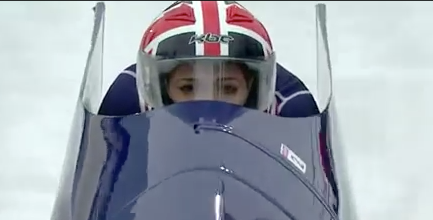
Gary Anderson, Team GB Bobsleigh Team Leader and Performance Director of British Bobsleigh said: ‘Since joining British Bobsleigh after the Vancouver 2010 Winter Olympics our mission was to head to Sochi as the best prepared possible physically, mentally and tactically and I think we are in good shape.’
‘Fifty years ago Tony Nash and Robin Dixon won gold at the Innsbruck 1964 Games and I look forward to watching our crews challenging for the top of the podium again in Sochi.’
CURLING
Curling formed part of the Olympic programme at the very first Winter Games in Chamonix in 1924 and Great Britain, skipped by William K. Jackson, took the only gold medal on offer.
After these games the sport didn’t appear again as a medal event until Nagano in 1998.
Held at the Ice Cube Curling Center in the main Olympic Park it can hold 3,000 spectators. The venue is a portable venue and may be re-located after the Paralympic winter games.
Canada are the most successful nation in the sport. They have won a medal at every single Games since 1998.
Besides the gold in Chamonix Britain’s only other was at Salt Lake 2002 when Rhona Howie delivered her ‘Stone of Destiny’ for gold, pushing Switzerland into silver.
GB is sending a men’s and women’s team to Sochi, the women being the reigning world champions and last season’s silver European medalists to Olympic hosts Russia.
With memories of that final still in mind Team GB go into the Games fiercely competitive and Russia, high on home support, could make for a nail-biting tournament.
The women’s curling team is Eve Muirhead, Vicki Adams, Claire Hamilton and Anna Sloan.
Muirhead, who will skip the team at Sochi, is the only member who has competed at a previous Olympic Games, in Vancouver 2010, but she did it with extreme confidence considering she was just 19 and skipped the team to seventh.
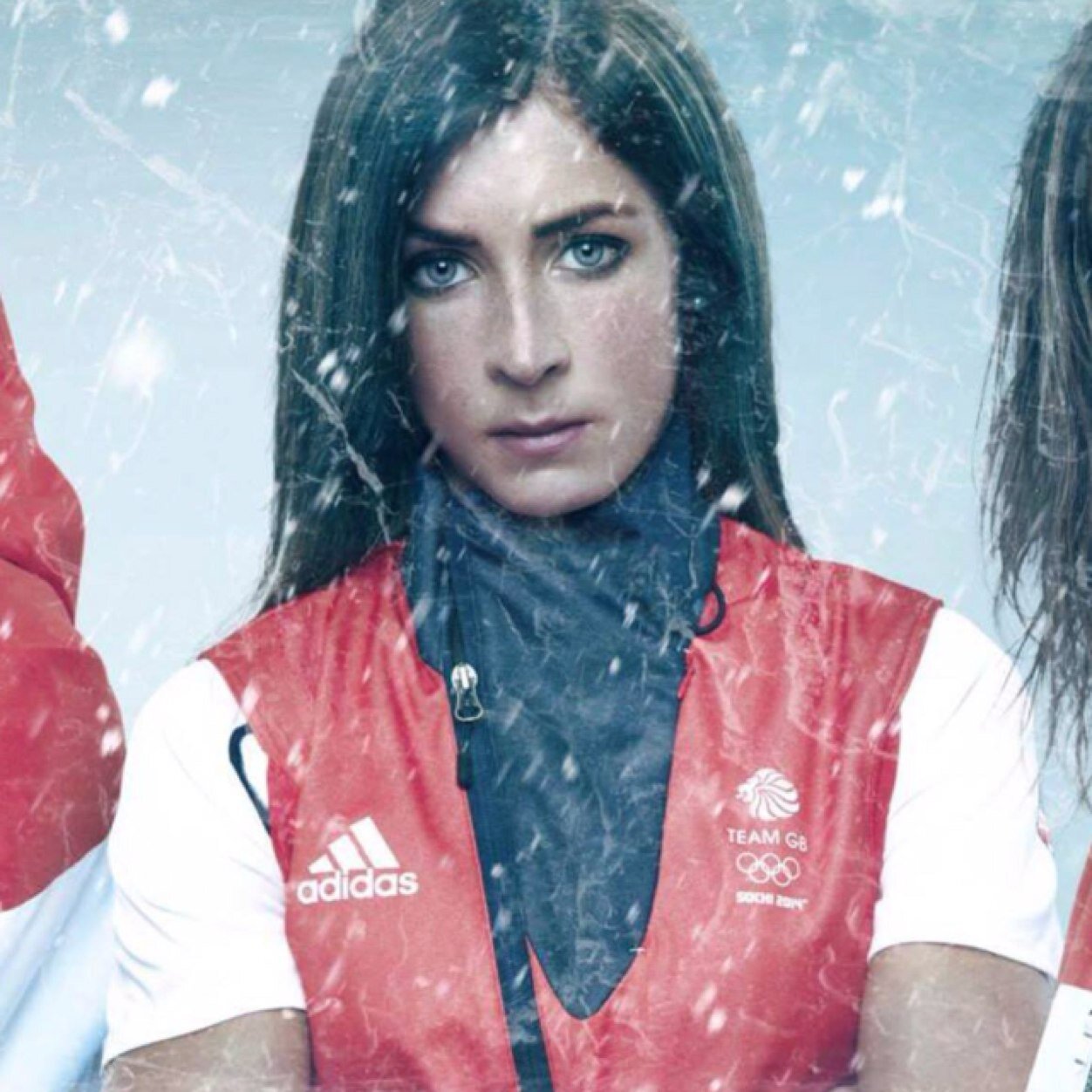
Now with four world junior titles, three of which included Adams as part of the team and Sloan for two, she is confident she can lead her team to Olympic gold 12 years after current Team GB coach Rhona Martin did the same in Salt Lake City.
‘We’ve trained really hard leading up to this and we’re capable of winning major championships – we’ve proven that,’ she says. ‘It’s important we break the Olympics down into two parts – the qualifying then the play-offs and semi-finals are like a new event.’
Muirhead’s rink gave one of their biggest rivals, Canada’s Jennifer Jones, a last minute warning ahead of Sochi when they beat the team12-2 at the Continental cup in Las Vegas last week.
And then Muirhead took another victory over her rival skip in a singles skills test.
Muirhead held her nerve to beat Jones again 19-12 before joining team-mates Anna Sloan, Claire Hamilton and Vicki Adams to take on USA rival Erika Brown’s quartet. They drew 3-3.
Sloan skipped Team GB to gold at the 2009 European Youth Olympic Winter Festival in Poland and led Britain to the 2011 Winter Universiade title.
‘In terms of winning gold, I’d say there’s us, Canada, Switzerland, Sweden and China, so there’s a good number in contention,’ Muirhead said: ‘Luck doesn’t really come into it. But to get the chance to represent Great Britain is extra special. An Olympic medal is the only one I’m missing. It would mean the world.’
BIATHLON
Taking place at Sochi’s Laura Cross Country Ski and Biathlon Center on the crests and slopes of Psekhako Ridge in Krasnaya Polyana where 7500 spectators can be seated.
Sochi 2014 set to be Biathlon 15th official appearance on the Olympic schedule. Athletes ski a predetermined distance before stopping at a shooting range to fire 50metres at five targets with the biathlon rifle, a 5.6mm caliber weapon, which they carry on their back.
Military patrol featured at the very first Games at Chamonix 1924 and it is not unusual for athletes to come from an army background, as is true with Team GB’s only two competitors for this year’s games, Lee Jackson and Amanda Lightfoot.
Men and women compete separately in each event but join for the mixed relay, which will be held for the first time ever at an Olympics at Sochi.
Lightfoot and Jackson will enter their respective sprint and individual competitions and their results will determine whether they qualify for the pursuit races.
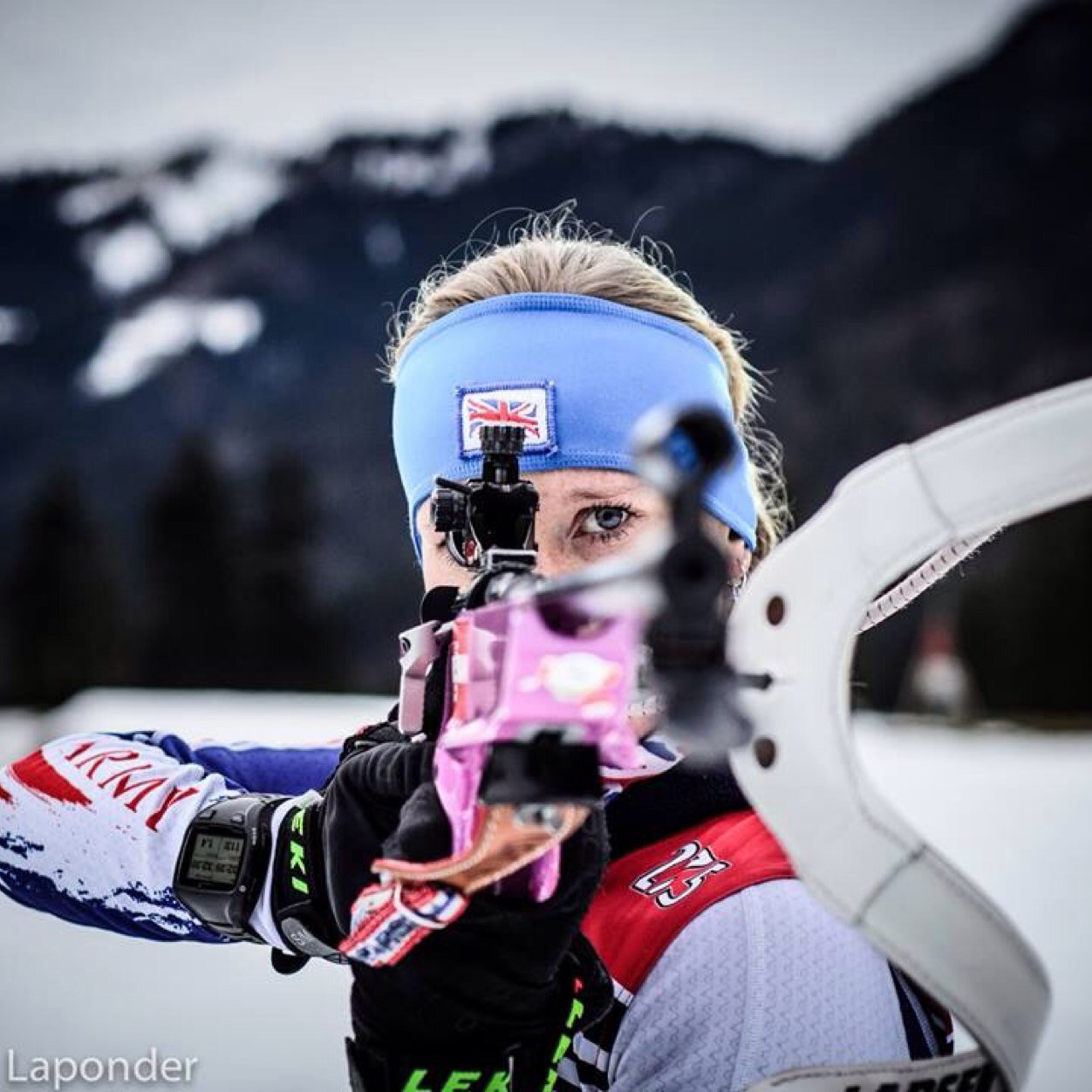
The Armed Forces support standing on the starting line at the Olympic Games with as much pride as serving your country on the front line. Biathlon serves as recruitment message too, the armed forces is not only about going to war, but strength, skill and competition.
But recent threat to funding for Britain’s Biathletes means Lightfoot,26, could be returning to the Adjutant General’s Corps where she serves, unable to compete again.
It is due to armed forces cuts. The British Biathlon Union (BBU) needs a £50,000 per year to continue.
‘It’s going to be particularly difficult to adapt back to being a soldier full-time,’ she confessed to BBC Sport.
‘The thought of not being able to continue in the sport is devastating to me.’
‘But we’re out here now to do this job and have the best season ever. It means more than anything to go out, this season, with a bang.’
She is the top-ranked British athlete and qualified with three Olympic qualifying standards while the minimum needed is two.
CROSS-COUNTRY SKIING
Also held at the Laura Cross-country Ski and Biathlon Center the sport is part of the Nordic Skiing family which includes biathlon, ski-jumping and Nordic combined.
It is a running where competitors propel themselves across the snow using poles and skis. It is one of the most difficult endurance sports requiring ultimate fitness because it uses every major muscle group.
Since Chamonix 1924 the sport has been dominated by Norway who have claimed almost 100 medals closely followed by Sweden. Great Britain are yet to win a medal in any event at an Olympic Winter Games.
With three competitors at Vancouver 2010, of which one was a woman, Fiona Hughes, the games was the first time we competed in the in sport in 16 years.
There are six different events at Sochi 2014, each varying in distance, discipline and staggered pursuits, and will either be freestyle (generating speed similarly to rollerblades) or classical (effectively walking and gliding, a slower style).
The women will compete in a 10km classical, a 15km pursuit, a 30km freestyle, an individual and team sprint and a 4x5km relay.
This year Team GB announced a record number of 19 ski and snow athletes will head to Sochi. Representing the nations women in the cross-country ski is Rosamund Musgrave.
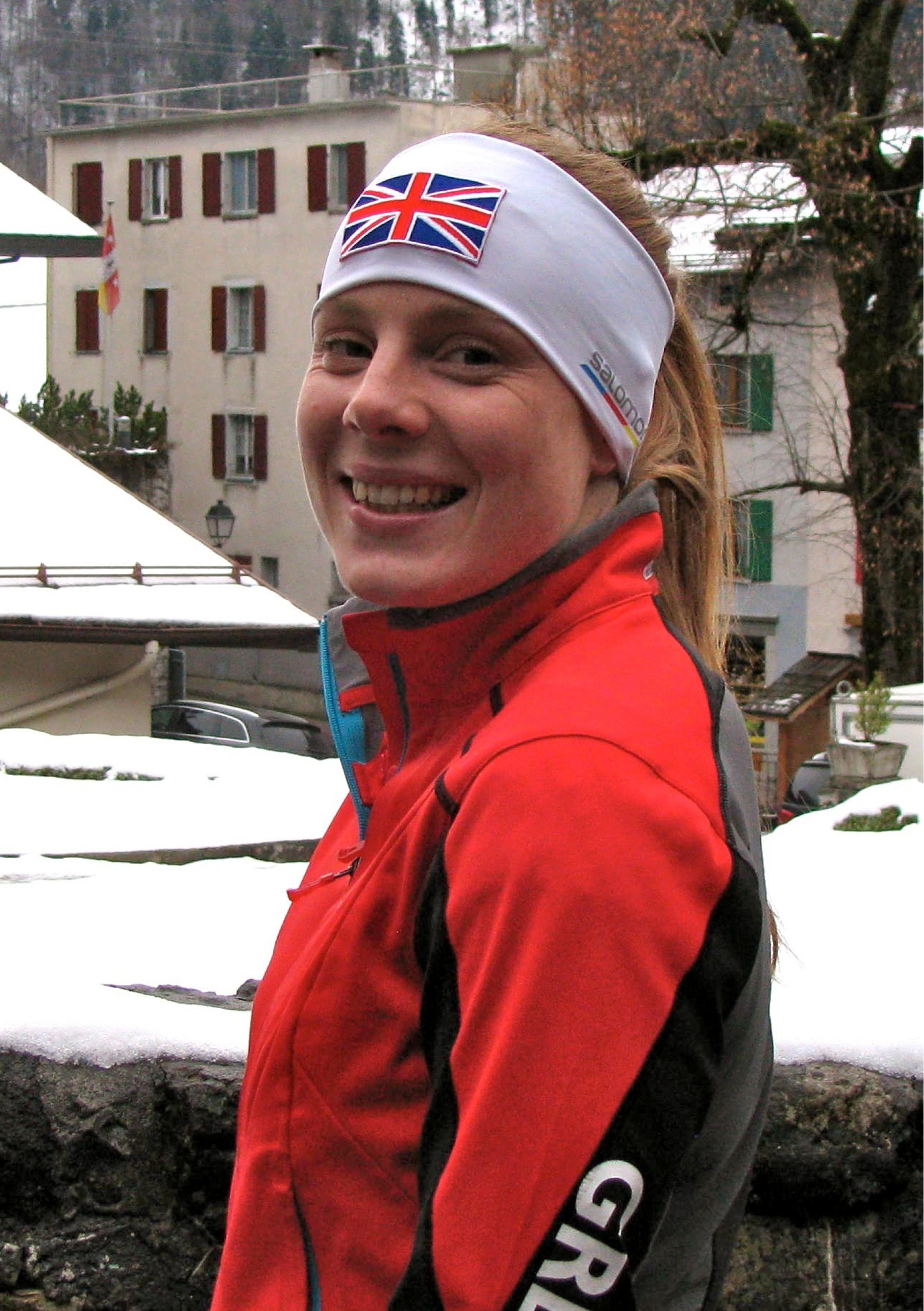
Musgrave, better known as Posy, is the older sister of Andrew, also a cross-country skier, who competed at Vancouver 2010. The siblings will travel and compete at Sochi together, though it will be her Olympic debut.
Currently the top ranked female sprinter in the UK she also has experience competing in ski races across the globe at the 2009 World University Games and the World Championships in 2011 and 2013.
ALPINE SKIING
Alpine skiing has been part of the Olympic Winter Games programme since Garmisch-Partenkirchen 1936. It has been a ten event programme since Calgary 1988.
There are five disciplines: downhill, slalom, giant slalom, super giant slalom and super combined.
Austria are Olympic alpine skiing’s most successful nation with 31 gold medals, followed by Switzerland with 13.
GB have never won an Olympic gold medal. Gina Hathorn at Grenoble 1968, finished fourth in the women’s slalom, just three hundredths of a second outside bronze while Felicity Field’s sixth place in the women’s downhill in 1968 is the best British performance in the discipline.
Slalom ski races are made of short tight turns and the giant slalom wider turns. Downhill and super-giant slalom have few turns and skiers reach speeds in excess of 60mph. Finally, the combined event tests the all-round skier competing over one run of downhill and one run of slalom with their time combined.
At Sochi the sport will take place at the Rosa Khutor Alpine Center located at Aibiga Ridge on the Rosa Khutor plateau near Krasnaya Polyana. The race courses were designed by 1972 Olympic gold medalist Bernhard Russia.
The World Cup series continues past January 19 with events taking place as close to a week before the start of Sochi 2014 – a tough schedule for the selected athletes but perhaps an advantage for Team GB’s sole female alpine ski competitor Chemmy Alcott.
She has not appeared on the World Cup circuit this season following injury, but turn it around and you could say she will come into the games raring to go and full of fight.
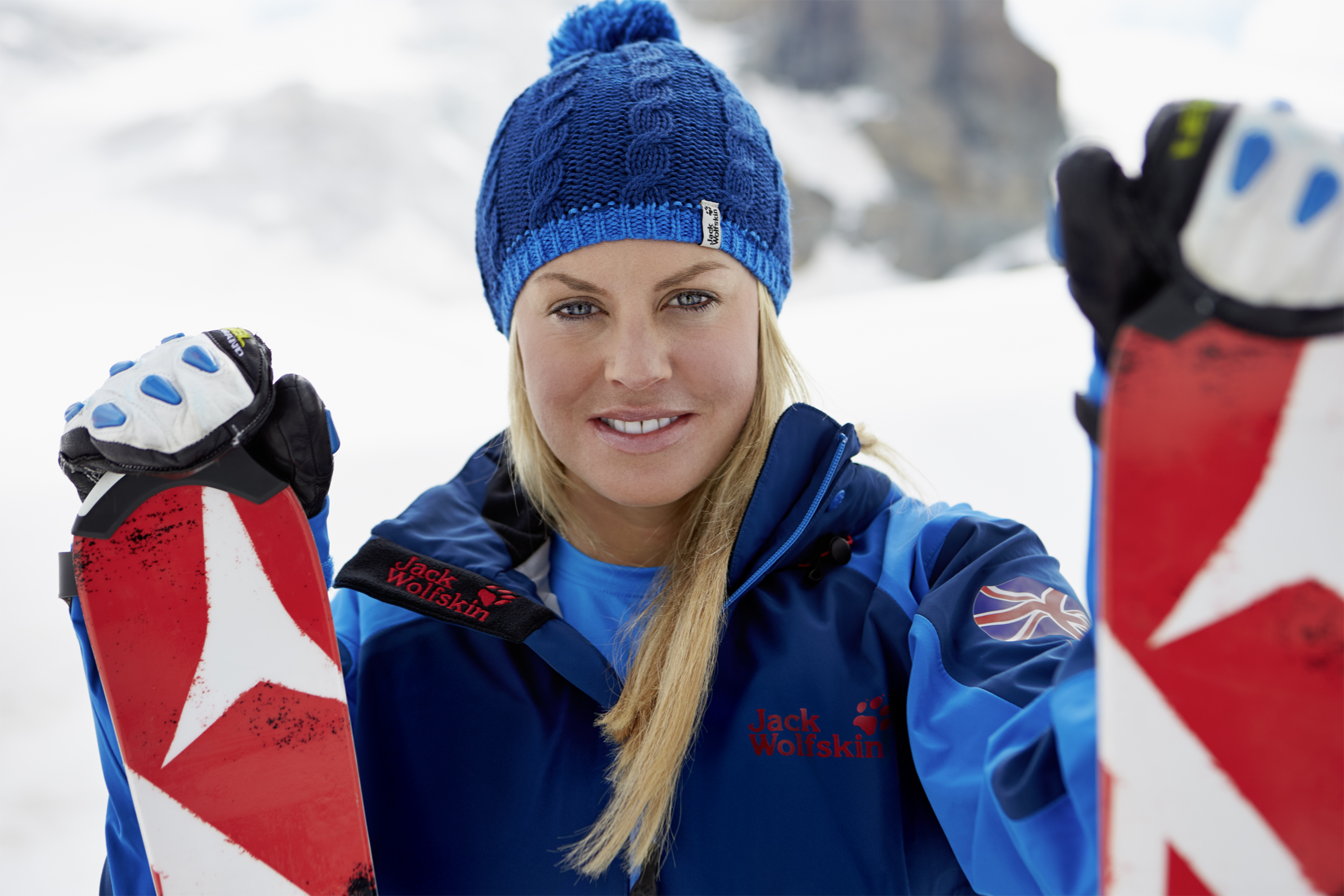
It’s an event which has been a long time coming for the 31-year-old. Being her fourth Olympic appearance her previous best performance was 11th in the women’s downhill at Turin 2006 and the super combined at Vancouver 2010.
They were not to frowned upon, being the best displays by a British woman since 1972, but Chemmy’s tough latest season has frustrated her into showing the world what she is really made off.
Alcott broke her leg training for the World Cup in Lake Louise in 2010 and despite a battle back to fitness for a successful return to the slopes in 2013, in August the injury gave way again and she was left with only months to recover ahead of Sochi qualifying events
In a last chance bid to show team officials she was fit to qualify yet further bad luck struck when her downhill race in Cortina last weekend cancelled due to heavy snow.
This year she hopes to compete in the speed events, the giant slalom, the slalom and the combined to improve her World ranking 8th.
In December she wrote in her Team GB Olympic Blog that there was no time to be bored waiting for an athlete’s injury to heel:
‘For every minute that I am not either sweating in the elite sportspersons ‘hurt-tank’ training room at Surrey Sports Park or visiting my friend and physio who I credit with always patching me up at Balance Physio in Clapham or trying to watch the latest episode of Homeland (at home!) spinning and pushing watts on the bike; I am plugged into some kind of healing tool.’
And it was her hard work for recovery that impressed team officials and medics enough to still put her in the Sochi team. They said they are confident she is ready to compete after defying the odds and impressing medics with her recovery.
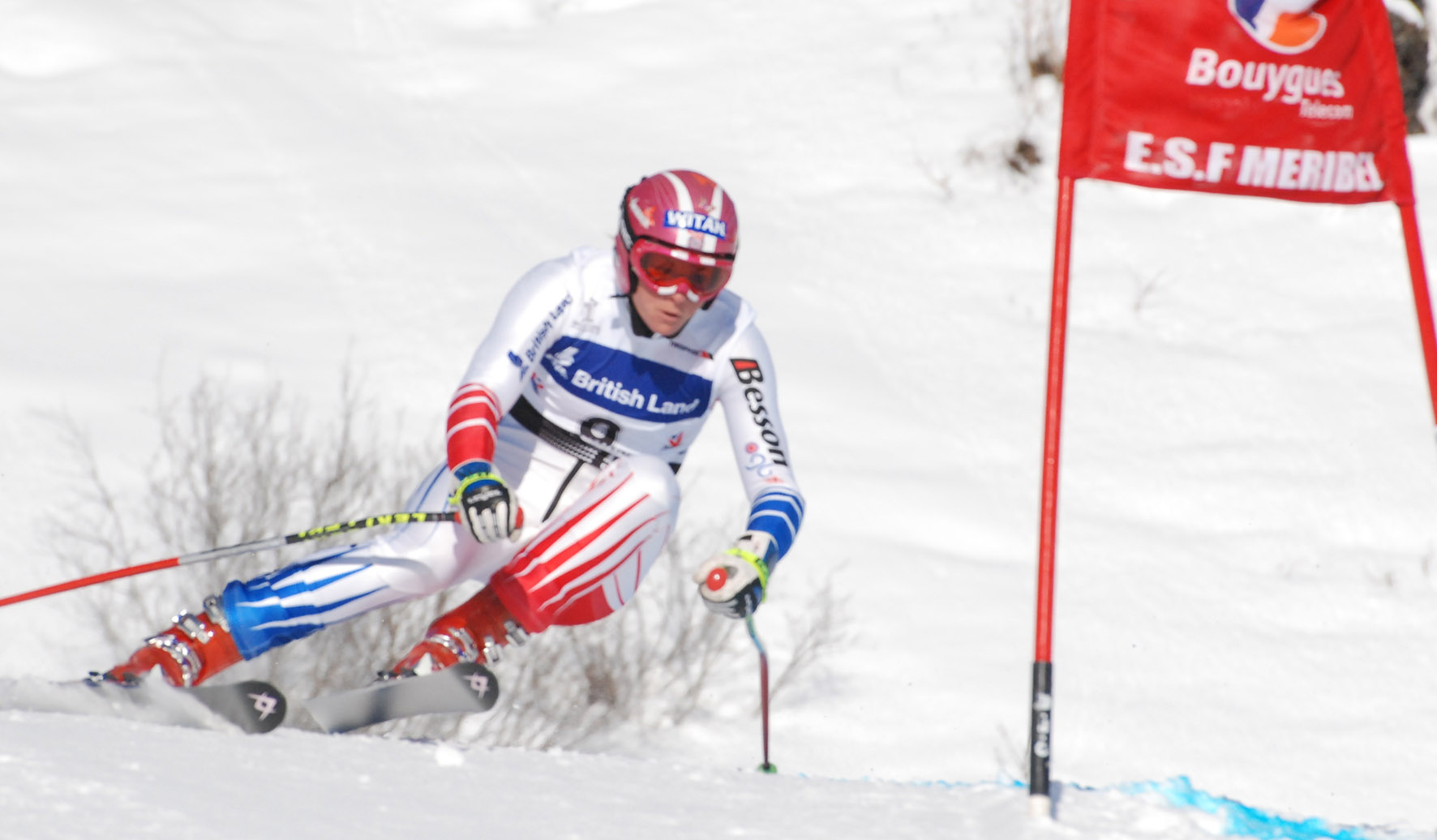
Alcott has claimed a fifth place finish, though not on the slopes but in ITV’s Dancing on Ice in 2012.
Despie describing herself as ‘a bit of a veteran at the Olympics’ she has promised this will be her best Games yet.
FREESTYLE SKIING
The venue for this sport is the Rosa Khutor Extreme Park, it is above the mountain village of Krasnaya Polyana and the Mzymta River and shares the site with the snowboarding events. There is room for 4000 spectators at the freestyle skiing.
Freestyle skiing began at the Olympic Winter Games at Albertville 1992 showing moguls, aerials and ballet events. Ski cross made its debut at Vancouver 2010 but it is Sochi which will display the hafpipe and slopestyle for the first time. This means there are far more gold medals up for grabs and even more reason for the athletes to be raring to go.
The dominant nation in the sport is the USA with five golds and 14 in total. Canada keeps on their tail with four golds and nine total medals. Britain have always shown in this sport but are yet to win a medal.
In the moguls event the athlete skis down down rugged slope and must perform two jumps for which they are scored.
Aerials athletes ski at 40mph off 20m high jumps. They can twist up to five times and flip up to three times in the air covering a 230m course in around 25 seconds.
Halfpipe sees athletes perform various tricks in what looks similar to giant tube of ice to score points.
Slopestyle takes place on a ski slope with obstacles such as rails and jumps. The athlete will use the objects to perform tricks for which they score points.
And finally the ski cross, made up of two parts. The first is a race against the clock performed individually on a course 1,000 meters long with turns and obstacles. Based on speed skiers are divided to race in groups of four with the two top finishers reaching the final.
Katie Summerhayes will represent Team GB in the Ski Slopestyle. For an athlete who is just 18-years-old she has the experience and medal list senior athletes would be jealous off.
At the age of 15 Katie was invited to the 2011 FIS World Championships in the USA. She took part in the Halfpipe and Slopestyle events, the first time that Slopestyle had been included, but that didn’t put her off and she finished in 11th place, just steps from the finals!
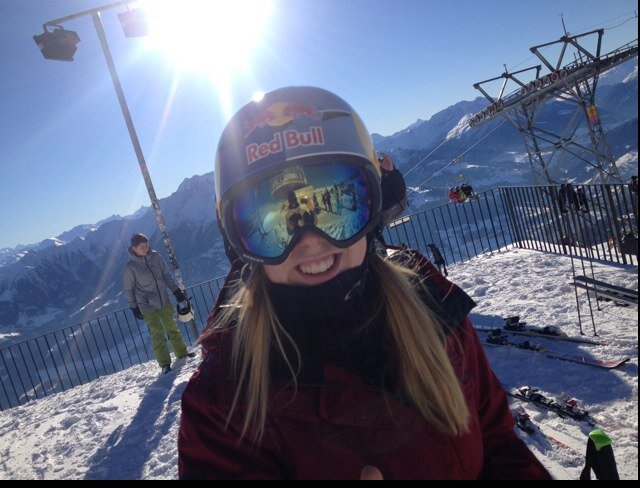
In the last World Championships in Norway 2013 she finished 4th, but managed a podium place this year when she won silver in the Gstaad World Cup, a promising result ahead of the Sochi 2014 Winter Olympics.
‘I am so thrilled to have been selected to compete for Team GB at the Winter Olympics. This is a dream come true and I can’t believe it’s happening. The last two years have been hard for me,’ she said thanking her supporters.
‘I can’t wait to get to Sochi both to compete and support the rest of the team.’
In the Ski Halfpipe is Rowan Chesire, also 18.
She said she is over the moon about being selected for Team GB though a little nervous as it’s the first time her sport has been in the Games.
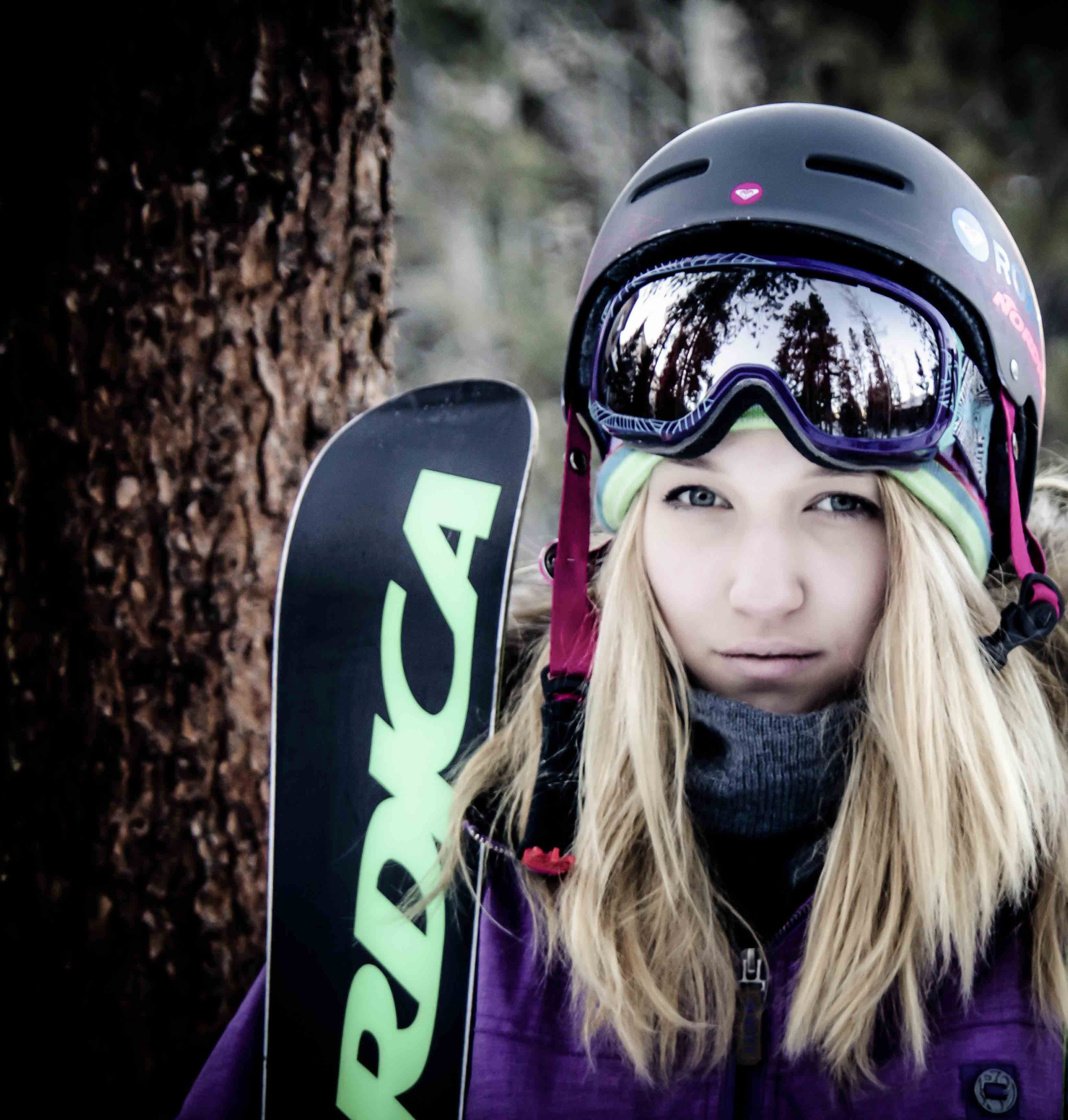
Her major introduction to Freeski was attending the Gromcamps and British Freeski camps abroad in Saas Fee, Switzerland. It was here that she decovered half pipe.
Now she is traveling around the world training and competing at World Cup level, recently winning Gold in Halfpipe World Cup in Calgary.
‘To have made it to Sochi means the world to me as I have grown up watching the Olympics and dreaming of going, and this has now become a reality.
Emma Lonsdale, 29, will join Rowan in the Ski Halfpipe.
Emma has been skiing for 27 years of her life but after competing in Alpine for 16 years she switched to Freestyle Skiing. It gave her the freedom to try out various different before deciding that halfpipe was the sport for her.
But without it in the Winter Olympics Lonsdale comes into Sochi an Olympic debutante.
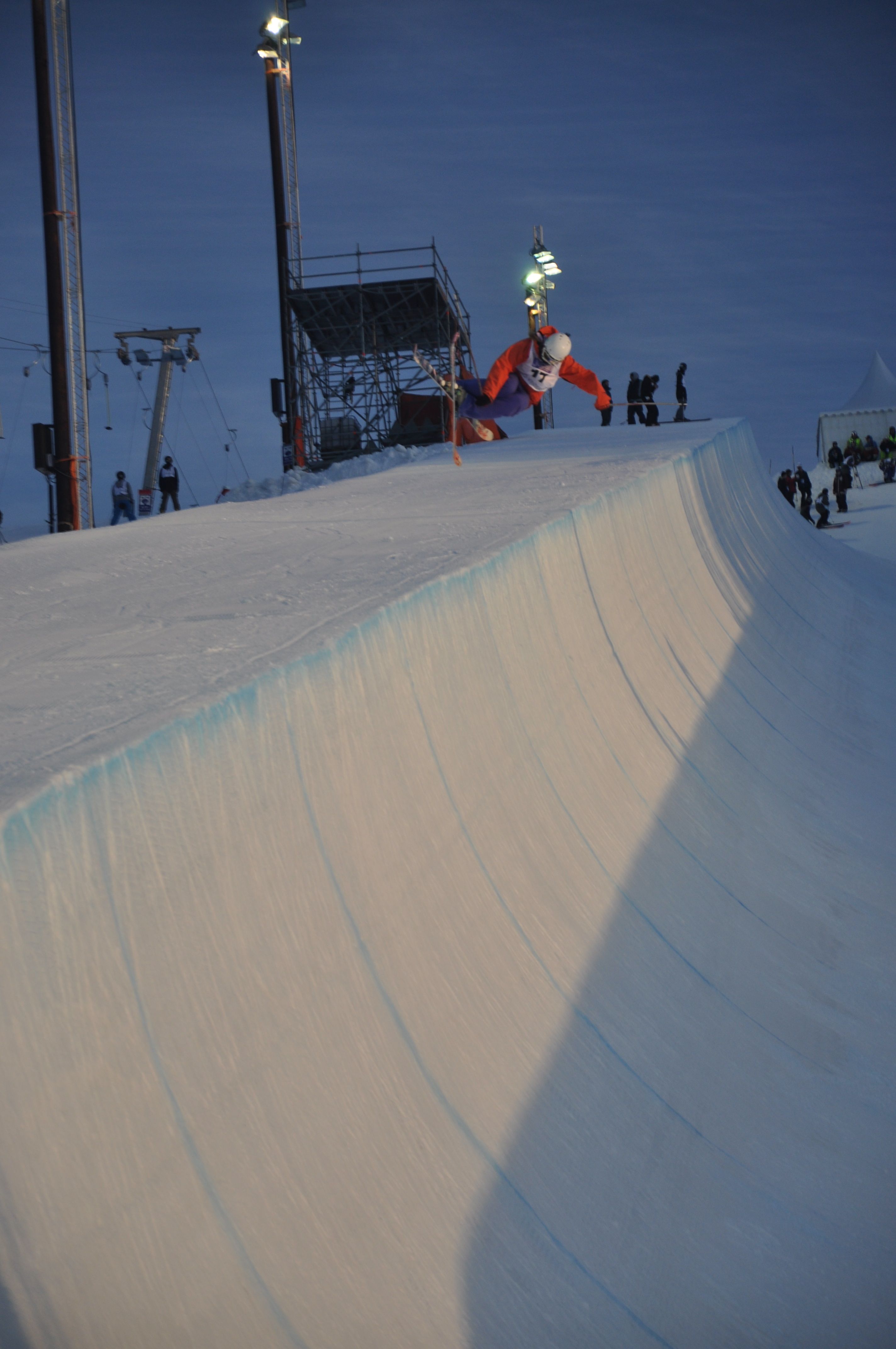
SNOWBOARDING
Also taking place at the Rosa Khutor Extreme Park with the freestyle skiing the site seats 6250 in the snowboarding areas.
Great Britain only sent four athletes to the previous two Olympic Games but has promised to send the biggest snowboarding team ever to Sochi. Though it isn’t sure just who will be among the group yet with the qualifying period ending on January 19th.
Hoping to claim some of the ten medals on offer in this sport is 28-year-old Zoe Gillings competing the snowboard cross, a division that sees athletes tackle a downhill course involving jumps, berms and other obstacles.
In the qualifying round they race on their own against the clock, with the 32 fastest athletes split into groups of four, who race in heats against each other with the top two proceeding to the next round until there are four athletes left to contest the final.
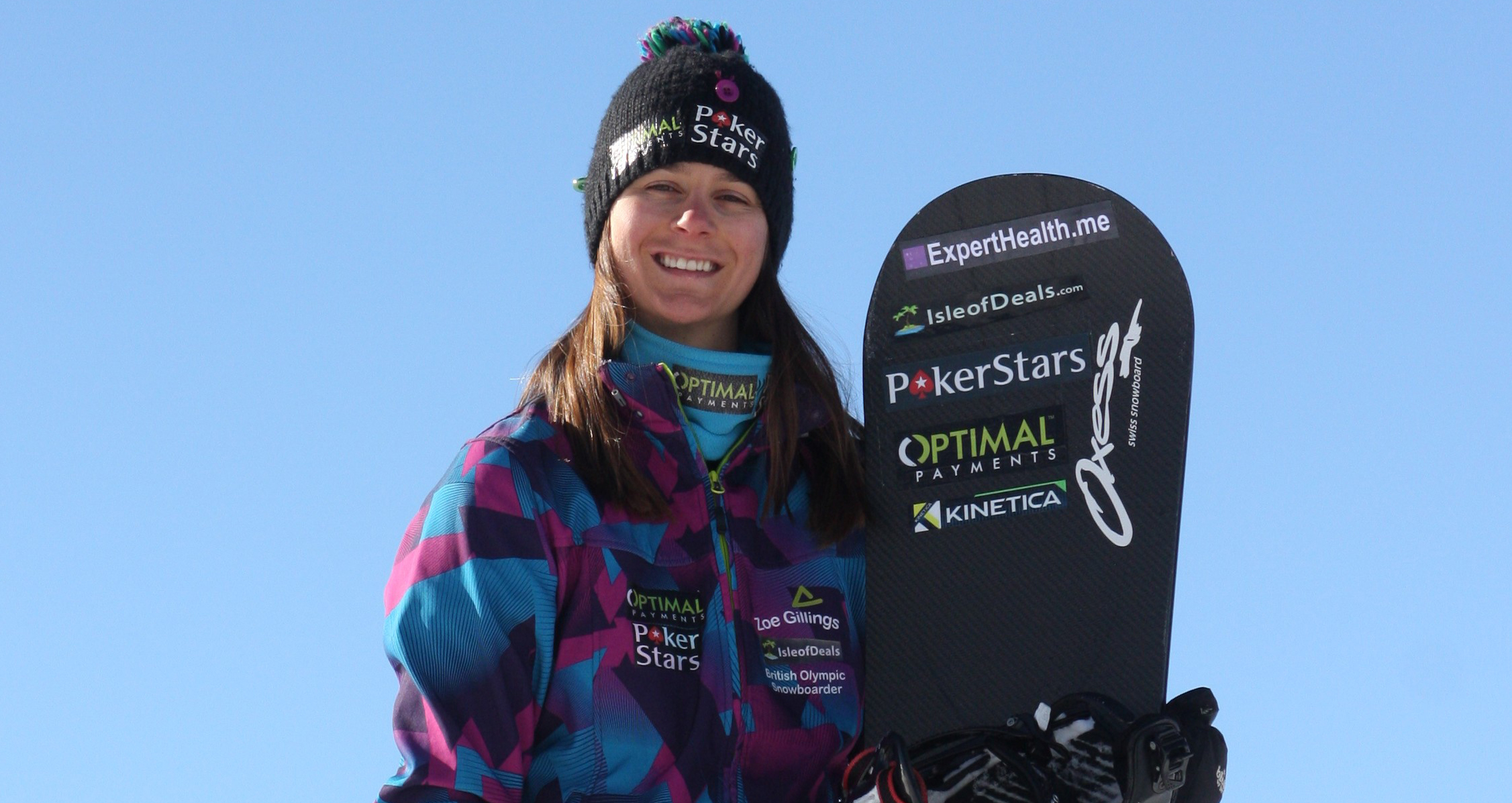
This will be her third Olympic appearance. At the Vancouver Games she made the B Final but an injury from an earlier round left her unable to compete in the run and she finished eighth.
Not bad for a lady who shattered her foot in 2005 and told she would never walk, let alone compete again.
Defying the verdict she spent eight months in intensive rehab and just a year after her accident strapped on a snowboard in time for the 2006 Turin Olympics finishing in an impressive 15th place.
Several World Cup podiums and a top World ranking of 5th later Zoe secured the highest British snowsport finish at the 2010 Winter Olympic games in Vancouver in 8th position.
Lets hope some of this determination and skill proves her will in Sochi.
Gillings said she is delighted to have been selected for a third time: ‘Now is the time for me to go to Sochi, use the experience I’ve gained at my two previous Winter Olympics, ride as fast as I can and try to get onto that podium!’
Three times X Games gold medallist Jenny Jones could finally get her chance to shine since slopestyle didn’t feature at Vancouver in 2010.
The first time she won an X Games gold medal she also became the first UK athlete ever to do so.
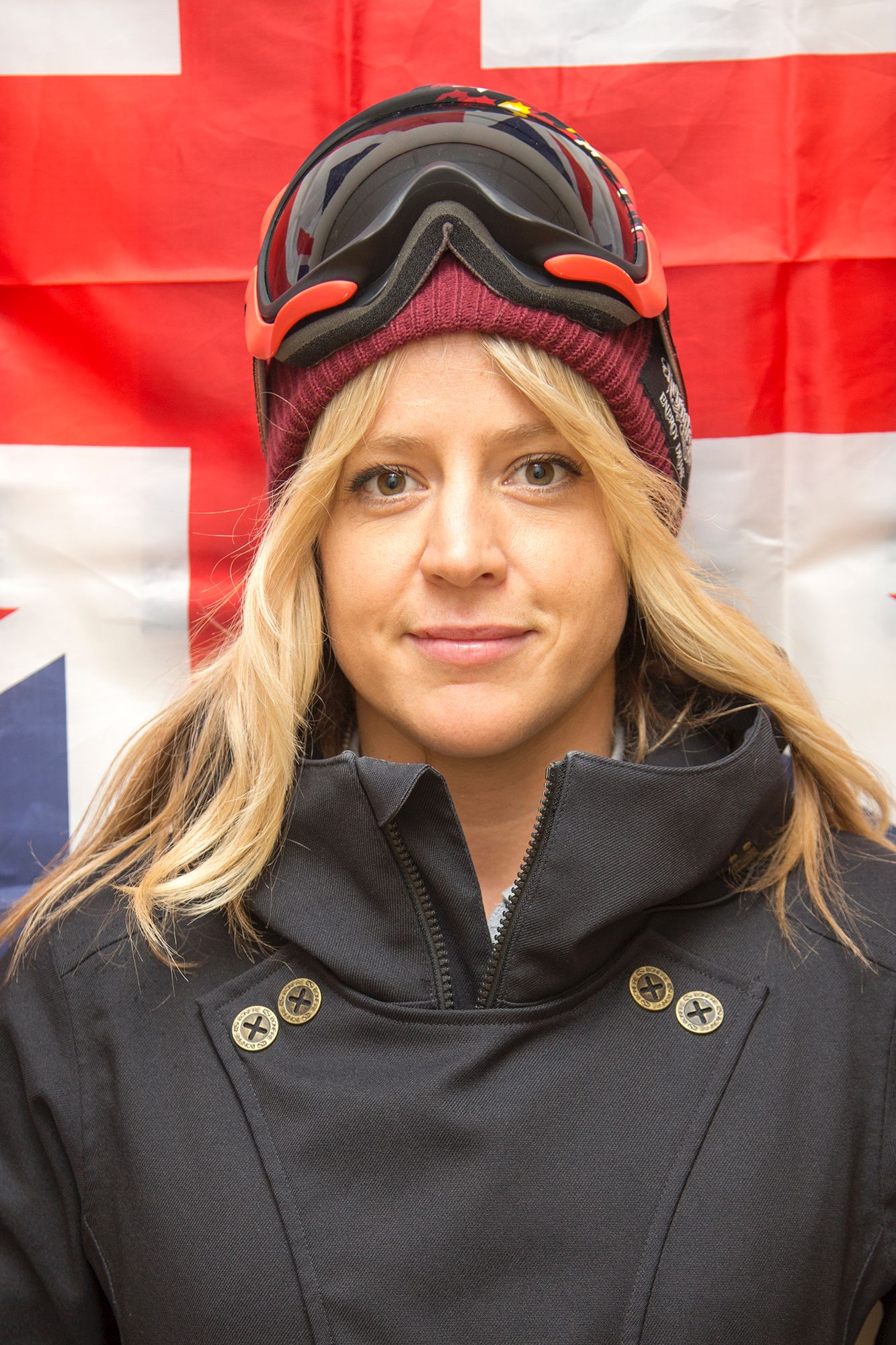
In slopestyle athletes make use of objects and jumps to perform tricks. Producing technically difficult tricks that are executed well and link together with flow scores higher. Height gained on jumps is also a factor while a failure to land cleanly can lead to a decrease in score. There are no set rules although new tricks generally score high.
It begins with a qualification round where 22 advance with the top eight progressing straight to the final and a semi-final scheduled to determine a further four for the final, where the athletes with the best scores go last.
She’s done a few things to prove she is raring to go ahead of Sochi: she began the current Olympic season with a World Cup Podium Silver and told BBC Sport she has banned high heels, skateboarding and Irish dancing until after Sochi because they have all been the cause of ankle injuries in the past.
Aimee Fuller, 22, was the first women to land a double backflip. She told Team GB she learned the double back flip and wanted to show it in a competition run. She managed this at the European X Games where she finished 6th in 2012.
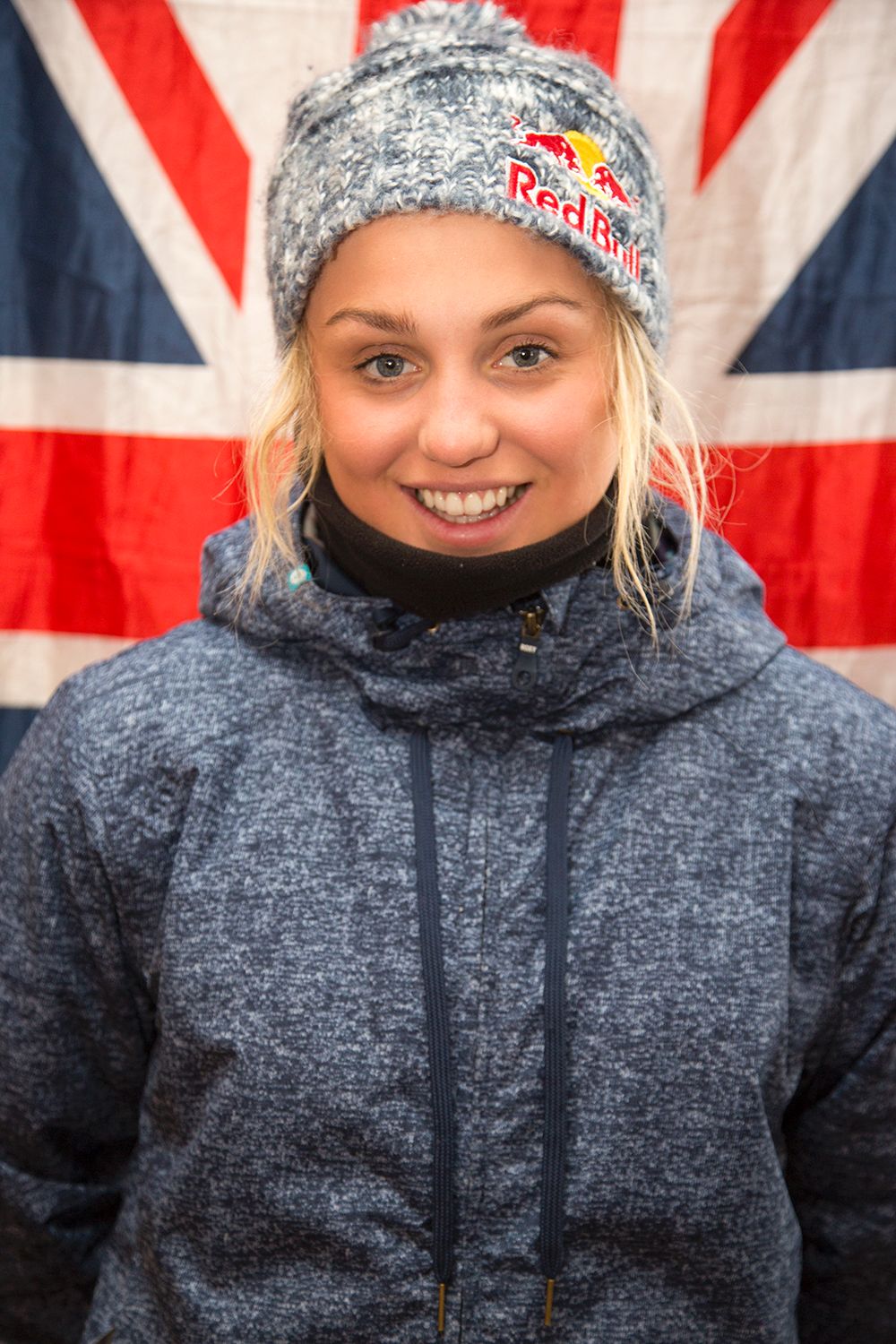
The adrenaline fuelled athlete also has 1st place in the Pleasure Jam for the last two years.
‘It’s a pretty high-risk trick, lots can go wrong with it if you under or over rotate. However, it’s not just about having one trick in your arsenal; everything else has got to be perfect as well.’ She told Team GB.
‘Our sport is now in the Olympics and you can feel the spotlight and it’s really surreal. We want to show the world what we’ve got and put our sport on the map.’
So there you have it, your 23-strong ‘Women to Watch’ at Sochi 2014.
They join the selected men in each sport taking Team GB’s total team membership to 56 – the most athletes we have ever sent to a Winter Olympics since the 1988 Games in Calgary.
The athletes spent this week being kitted out at Addidas HQ, from ‘the heatpant’ to maintain muscle warmth generated during warm up, to the ‘Powerweb’ (thermoplastic Polyurethane) that stores and returns elastic energy, to ensure athletes look as cool as the snow scene will make them feel.
But as the team get into their kit and the spirit of the games GB Winter Olympic Team Boss Mike Hay said while he is optimistic and confident he wants to manage expectations.
Britain has never won more than four medals at a Winter Games, and not a single one since Lillehammer 1994. That said the team have been set a target of three-seven from Sochi.
‘We understand expectations and we take that as a vote of confidence that this could be the most successful delegation since 1936 [when Britain won three medals],’ said Hays.
‘I don’t want to put undue pressure on the athletes. We don’t have the depth of other nations and we are fragile at the top and we need to stay focused.’
Hay is taking on role of chef de mission to the British team for the first time at Sochi 2014 but appears confident and attentive on his role.
He explained it is not always realistic for an athlete to make the podium and encourages that their focus should be on delivering the best standard to uphold a future in their sport.
‘You don’t want to make excuses but there is an unpredictability with winter sports, they are high risk and I’m on the cautious side,’ he said.
‘I’m hoping athletes don’t think about targets or worry about future funding but focus on the job in hand. I’m looking for people to deliver their personal bests and peak at the right time.’
The 22nd Winter Olympics will take place from 6th to 23rd February.
Like this article? Sign up to our newsletter to get more articles like this delivered straight to your inbox.




















































